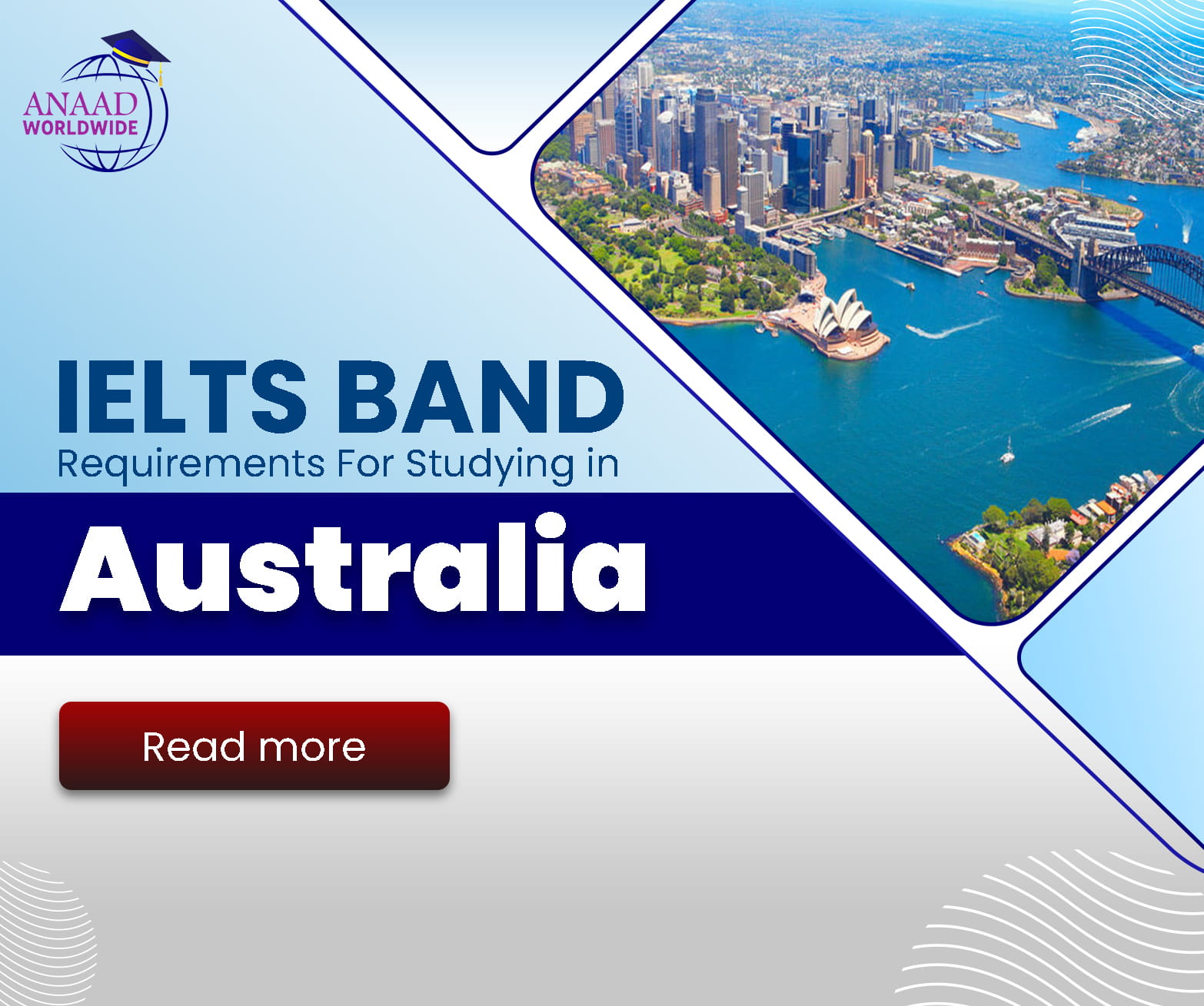More and more students are opting to study abroad in Australia because of its excellent education, numerous post-study work opportunities, and high standard of living. Let’s take a closer look at the Australia band requirements since the IELTS test is the initial stage
With 1,100+ institutions, 22,000+ course options, and consistently top-ranked universities, the Australian educational system equips you to tackle the outside world. In terms of cultural diversity, internationally recognized degrees, top-ranked universities, a dynamic educational environment, and an open work culture, Australia has everything you could possibly need for the best possible global exposure. Then what? There are some of the world’s most livable cities. What is the best way to get there? We can learn everything about Australia’s band requirements right here.
What do IELTS bands mean?
IELTS results are displayed on a 9-band scale. They are meant to be clear and easy to understand. Scores range from 1 (the lowest) to 9. (the highest). All IELTS exams follow the same scoring criteria. A score or band is assigned to each test—listening, reading, writing, and speaking.
The various scores are then added together and rounded to the nearest half-band to produce an overall band score. Based on the widely accepted idea of second language loss or “attrition,” the IELTS allies recommend a 2-year validity for IELTS test scores, while it is up to each organization to choose a validity period that meets their needs.
The range of bands or scores is from 1 (Non-user), which indicates that the test-taker can only use a few isolated words in the language, to 9 (Expert user), which indicates that the test-taker has full operational proficiency in the language. They use English with soundness, accuracy, and fluency, showing that they fully comprehend.
How many bands are required for studying in Australia?
An applicant for an Australian study visa who wishes to enroll in an undergraduate program must have an overall IELTS score of at least 6.0 and a minimum of 5.5 in each of the four required bands. However, graduate courses require an overall IELTS score of 6.5 or higher and a minimum of 6.0 in each band. But bear in mind that if you decide to pursue a degree in engineering, teaching, or education studies, the required IELTS score is 7.0 overall per band.
For most undergraduate programs, you must have an IELTS score of at least 6.0, and for postgraduate programs, you must have an overall score of 6.5. Keep this in mind, when requesting a student visa for Australia.
Why are IELTS results required to study in Australia?
Because Australia is an English-speaking country, all of its international students must be fluent in English. IELTS is a requirement for receiving an Australian student visa. Colleges and other institutions frequently recognize IELTS as proof of your English language skills.
IELTS, which is accepted by virtually all professional organizations and is integrated with the point-based immigration procedure, is the best exam for entry to Australia. To be eligible for an Australia visa, you can select between taking the IELTS Academic or IELTS General Training.
How can you improve your IELTS score?
In order to enroll in a university or institution where English is the major language of instruction in an English-speaking country, non-native English speakers must take the IELTS Academic module, which assesses their language skills. When non-native English speakers want to travel overseas, especially to English-speaking countries, for employment, immigration, or vocational education programs, the IELTS General Training module evaluates their language ability (not for degrees).
The four components of each module are speaking, reading, writing, and listening. Both modules contain listening and speaking, with nearly identical questions and a similar level of difficulty.
Listening test
Watch movies and online videos in English; listen to radio programs, news, and lectures in English. Put some effort into learning British English.
Understand the various multiple-choice, matching, and labeling listening test question forms.
Reading test
Read books, periodicals, journals, and newspapers in the English language. As you read, underline or highlight less frequently used terms.
Understand how to respond to any type of reading question on an academic or general training test.
Test your ability to read swiftly under pressure. You must be able to read swiftly if you want to finish all three sections and 40 questions in 60 minutes.
Writing test
If you plan to take the IELTS Academic module, look up examples of graph, chart, and diagram explanations online and analyze them for their use of language and idea structure.
If you plan to take the IELTS General Training module, look for sample letters online and evaluate them for vocabulary and concept structure.
Check out online IELTS essay samples for assignment solutions, essay organization, coherence, vocabulary use, and sentence variety.
Speaking test
Make the most of every chance to practice speaking.
Read a lot of books, preferably in English, watch movies and TV series, and tune in to the radio.
Prior to entering the examination room, talk in English with other candidates. You’ll find it simpler to switch to English as a result.
Summarizing it all for you
|
